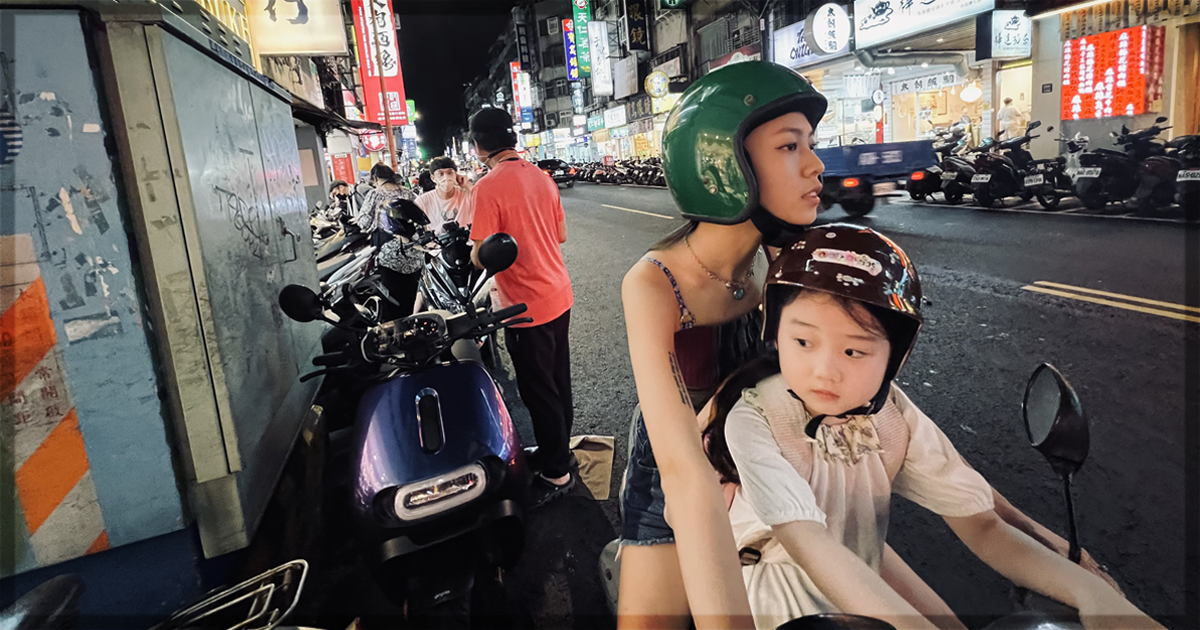For his next trick – not his follow-up to Anora, since he did not direct – Sean Baker has co-written, edited and co-produced this Taiwanese movie about a family of three women trying to make it in Taipei. The director (and co-writer) is Shih-Ching Tsou, who has worked with Mr. Baker for decades and who clearly shares a certain sensibility with him. She is not as confident a creator, but she does have an unusual ability to create character through mood. Left-Handed Girl has a lived-in dynamic that many more experienced directors have never quite achieved, and the sympathy it creates for its main characters is an achievement many more experienced directors would kill for. Countless other directors have done a lot less with a lot more.
They have returned to Taipei after several years in a smaller town. Mother Shu-Feng (Janel Tsai) opens a noodle stand in a night market next to a stall where a friendly man does his awkward best to sell dollar-store-style gadgets. Older daughter I-Ann (Shih-Yuan Ma) should be in university, but there’s no money. Since she refuses to help at the noodle stand she instead gets a job in a betel nut stand, a kind of low-rent snack shop where’s she’s expected to dress in nearly nothing and flirt with each man who comes through the door. Not the kind of job that improves anybody’s mood. And then there is five year old I-Jing (Nina Ye) who is funny and sparky, excited to explore her new world of the night market, and also left-handed. This upsets her grandparents, who are surprised that Shu-Feng hasn’t trained this out of her and don’t appreciate I-Ann’s sharp remarks about how times have changed.
Money is a huge problem, not least because Shu-Feng’s ex, whose abandonment of the family some years ago necessitated the move to the countryside, is terminally ill and Shu-Feng feels she must take financial responsibility for his final care. Shu-Feng’s awful mother has her own busy career in people trafficking, which the entire extended family is aware of and discusses like it is a charming hobby. The entire extended family is also very free with their harsh comments about all of Shu-Feng’s choices, which include refusing to help out financially and instead focusing their resources on a son working abroad who does not need the help. And if that wasn’t enough, one afternoon the grandfather loses his temper with I-Jing for using her ‘devil hand’. I-Jing takes this to heart, until she reasons that if her devil hand does something then she is not responsible. Of course anyone over the age of five knows better.
The complicated dynamic of this family feels incredibly real. Shu-Feng and I-Ann treat each other as equals even when they argue, and even I-Jing helps out around the apartment and the noodle stall without much complaint. The united front they pose against Shu-Feng’s unkind family even when they are most angry with each other probably helps with the family solidarity. But in another real sense all three of them are living very separate lives. I-Jing moves herself around the city in ways which most Western mothers would never allow nor imagine a kindergartener is capable of, but in Taipei others treat her as an individual, not always making concession for her small age. I-Ann is at that stage of early adulthood where no one older can tell her anything, but her inability to make good use of intelligence and the misogyny all around her means her hope for the future is beginning to curdle. So instead she focuses on her body, dressing skimpily and shielding herself with her long hair, in the hopes that will at least change things somehow. Meanwhile poor Shu-Feng is just running to stand still. Even the kindness of the man at the gadget stall doesn’t help, because then that kindness will have to be repaid.
Everything comes to a head at the grandmother’s sixtieth birthday party, which features enough melodrama and confrontation for several lifetimes. The way in which Ms. Tsai shows how Shu-Feng bends but does not quite break under this dreadful pressure is a masterclass in simmering weariness and frustration not being allowed to explode. I-Ann does allow herself to explode, with the spitefulness of youth, and Ms. Ma makes it clear how we see I-Ann slowly, embarrassingly realise what she has done. It’s a lot, but then again people in their early twenties are usually a handful no matter what they are up to. Little kids, even those as well-meaning as I-Jing, are a handful too, just of a very different kind. The handful of moments which make up Left-Handed Girl leave an unusually strong impression, and bodes very well for Ms. Tsou’s next film.
Left-Handed Girl recently played at the Cannes Film Festival.
Learn more about the film at the Cannes site for the title.
You might also like…
‘Case 137’ Film Review: France and Lessons Learned From 2018


